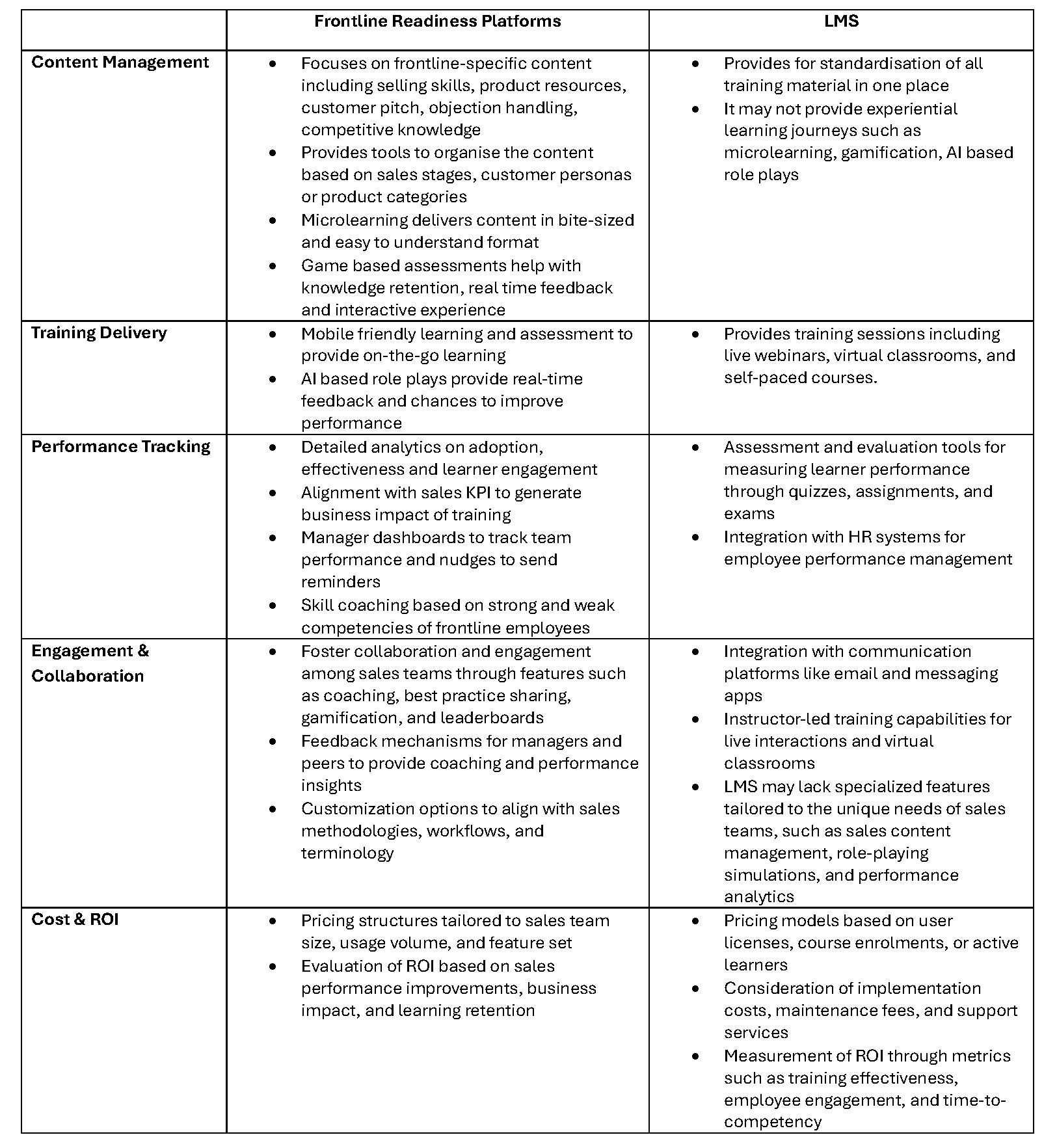Employees are the biggest assets for any organisation. Therefore for an organisation’s success, employee training and upskilling is indispensable. Enabling frontline employees with the right resources and training makes the organisation agile, competitive and generates more business in the long term. According to LinkedIn’s Global Talent Trends Report 2023, companies whose employees excelled at developing skills in the last 12 months have a 15% higher internal mobility rate than companies whose employees lagged. To quote Jennifer Shappley, LinkedIn VP of Talent,
“This insight underscores the advantages of adopting a dynamic talent-management model that brings together talent acquisition and talent development functions.”
Comparing Learning Management Systems (LMS) with Frontline Readiness Solutions can shed light on their unique benefits and functionalities in distinct organizational contexts. An LMS primarily focuses on delivering and managing online learning content, tracking progress, and assessing learners' performance. It's commonly used in educational institutions and corporate environments to facilitate training programs, compliance courses, and skill development initiatives. On the other hand, frontline readiness solutions are tailored to address the specific needs of frontline workers, such as those in financial, housing, retail, hospitality, healthcare, and manufacturing industries. These solutions typically emphasize real-time communication, customised content management, and access to relevant resources at the point of need for frontline employees, enhancing operational efficiency and employee productivity.
While both LMS and frontline readiness solutions contribute to organizational learning and development, they serve different purposes within an organization. Choosing the right solution depends on factors such as the nature of the workforce, training requirements, and operational objectives. Here is a 5 point checklist to understand LMS and Frontline Readiness Platforms:-

This checklist can serve as a starting point for organizations evaluating the suitability of LMS and Sales Readiness Platforms based on their specific training and sales enablement needs. The choice between an LMS and a Sales Readiness Platform depends on the specific training and enablement needs of the organization, as well as factors such as budget, scalability, user experience, and integration requirements.
Master-O®, a frontline sales readiness and gamification platform, has powered several sales enablement & frontline readiness programs for enterprise customers and been a key driver of sales strategies for leaders across industries. To make capability development, sales enablement & engagement more personalized, Master-O® empowers sales managers tap into various data points and analytics for coaching & upskilling their frontline reps. This gives sales leaders and managers much-required objective perspective to reimagine their sales coaching, capability development & enablement approach and realign it with performance metrics.
To learn more about Master-O®, please visit masteroapp.com or schedule a demo to discover how Master-O® can redefine sales readiness & frontline capability development for your organization.
